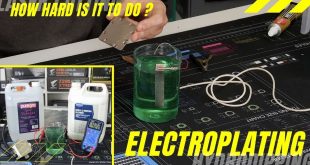Quantum computers are still a work in progress, however researchers are indicating the potential these machines will have for important and complex calculations. Three theorists have made a video indicating that these machines would be powerful enough to study the inner workings of the universe in a manner beyond the capabilities of current supercomputer technology. [yframe url='http://www.youtube.com/watch?v=pWL3ept0HEY']
Storing Quantum information in atoms or using qubits is already a working design, but quantum computers require technologies that are likely to be perfected in a few decades. Quantum based processors will enable quantum switches to exist in both on and off states simultaneously therefore able to consider all the possible calculations at the same time.
They will be able to answer some of the most difficult questions.
We have this theoretical model of the quantum computer, and one of the big questions is, what physical processes that occur in nature can that model represent efficiently?” said Stephen Jordan, a theorist in NIST‘s Applied and Computational Mathematics Division. “Maybe particle collisions, maybe the early universe after the Big Bang? Can we use a quantum computer to simulate them and tell us what to expect?”
Questions such as this are just too complex for current technology. The team have developed an algorithm that can simulate all the possible interactions between two elementary particles colliding with each other, something that current requires years of work and a large accelerator for study.
Zmescience add “Simulating these collisions is an enormously difficult problem for today’s digital computers because the quantum state of the colliding particles is very complex and, therefore, difficult to represent accurately with a feasible number of bits which only work with 0 and 1. The team’s algorithm, however, encodes the information that describes this quantum state far more efficiently using an array of quantum switches, making the computation far more reasonable.”
Kitguru says: How will this change enthusiast computing in the future?
 KitGuru KitGuru.net – Tech News | Hardware News | Hardware Reviews | IOS | Mobile | Gaming | Graphics Cards
KitGuru KitGuru.net – Tech News | Hardware News | Hardware Reviews | IOS | Mobile | Gaming | Graphics Cards



